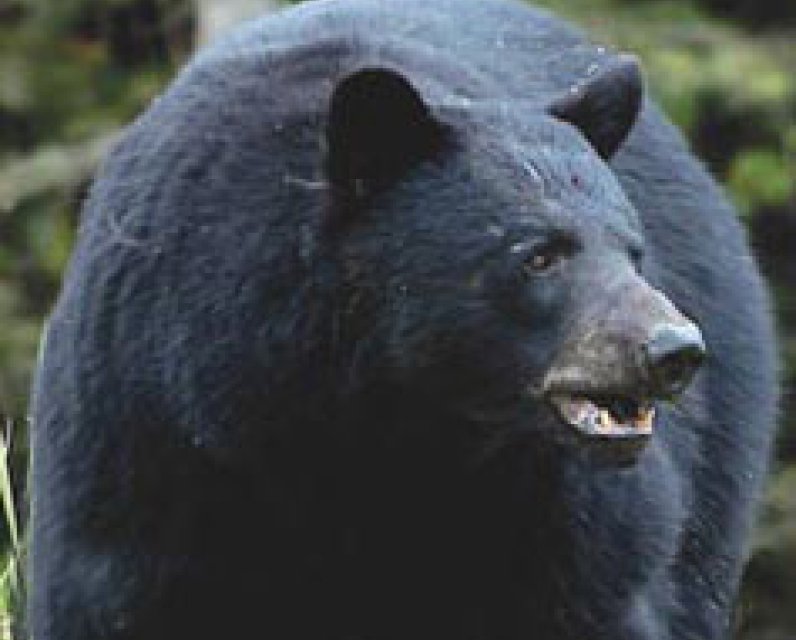Unpublished Opinions
Barry Kent MacKay is the Canadian representative of Born Free USA, as well as a director of Animal Alliance of Canada, Zoocheck, Species Survival Network, an experienced naturalist, conservationist and animal protectionist, and a bird artist and illustrator, and has written and illustrated for numerous publications.
What Kathleen Wynne Does Not Know is Harmful to Bears--and to People

First published on Born Free USA on January 21, 2014.
Ignorance Trumps Facts in the Interest of Votes
Neither Kathleen Wynne (the Premier of Ontario), nor David Orazietti (the province’s Minister of Natural Resources), nor Bill Mauro (Member of Provincial Parliament for Thunder Bay-Atikokan in northern Ontario), nor the staff of the Ontario Federation of Anglers and Hunters (OFAH), nor anyone else salivating at the thought of returning to a spring bear hunt, has heard of a document with the pedantic title: “Correlation of Reduction in Nuisance Black Bear Complaints with Implementation of (a) a non-violent program and (b) a hunt, Final Report” by Edward A. Tavss, Ph.D., Department of Chemistry and Chemical Biology at Rutgers University. Either that, or these people are horrifically two-faced opportunists who lack compassion for bears and people.
Wynne and Orazietti are responsible for a plan to bring back a so-called “test” spring bear hunt that will allow Ontario hunters to kill bears who have emerged from hibernation, desperately hungry, and, in some instances, nursing dependent cubs born during the winter dormancy. Mauro has introduced a private member’s bill to go back to the bad old days and have a full, open spring hunt. And ever since the spring bear hunt ended in 1999, OFAH has encouraged people to report all sightings of bears as life-threatening conflicts, while claiming that experts who actually have the information are wrong, by saying that there have been no significant increases in black bears, nor in conflicts. They have done a superb job of convincing Ontarians, especially in the north (bear country) that there is a rampant increase in bears and bear-human conflict. None of these people show any compassion for starving cubs.
The Tavss report was presented back in September of 2005 at the New Jersey Public Hearing on the Comprehensive Black Bear Management Policy. Tavss primarily addresses the concern of “harmful human-bear interactions” in response to the New Jersey Supreme Court Decision, made the previous February.
The report examined the number of those harmful human-bear interactions to determine which was the better approach to reducing the number of times bears hurt, or even killed, humans. Tavss looked at data from three U.S. national parks, three communities bordering national parks, two communities (one in Nevada, one in Ontario) in prime bear habitat, four U.S. states (three of which border Ontario), and Ontario itself.
Tavss determined that, in virtually every case (though there was one partial exception), the greater the number of bears who were killed, the greater the number of complaints that were made. “Ontario, Canada’s data from 1989 to 2000,” it states, “show that there has been a bear hunt every year, with generally increasing number of bears killed annually. The number of complaints has correspondingly increased.” For Elliot Lake, Ontario, he states, “The year before public education and bear-resistant containers were implemented there were 500 nuisance bears, and three shootings…In 2004 there were 87 nuisance bears and no shootings.”
These, and numerous charts showing dramatic decreases in complaints about bears when the shooting ends, may seem counterintuitive. Explanations are provided, but you have to read the document to know that—or at least listen to the people who know this stuff, including, in the case of the premier, your own staff!
But no. Instead, we have, in response to a letter of concern, Premier Wynne saying, “Public safety is paramount and Ontarians should feel safe in their communities. We have heard from our northern municipal partners on the issue of bear management, and will continue to work with municipalities on ways to limit human-bear interactions.” (When “municipalities” garnered the knowledge of men and women who have spent their careers actually working with bears remains to be explained.)
Note, though, the use of the phrase “should feel safe” (emphasis mine). Whether or not residents are actually safer is a different matter. The fact is, they are not, if the “danger” that threatens their safety is the presence of bears near people. Thanks to Wynne, that will happen more often. The methodologies she does not want to fund worked not just to the benefit of bears, but most importantly, to the benefit of people. Wynne may know this, or may not. She may honestly think that the death of bear cubs is the price we must pay to make people “feel” safe, and that making them “feel” safe matters more than making them actually safe. But given that there has never, ever been a person killed by a black bear within any community in Ontario, or all of Canada, I would think that these people would “feel” safe already (were they better informed). And with education, they’d be better able to reduce those encounters that people so fear. But we had all of that, and a study we taxpayers paid for, saying how to improve it. The Liberals didn’t care, and cut its funding. Now they ignore what we know.
In other words, Premier Wynne is no different from any of our current crop of right wing politicians for whom facts don’t matter, and for whom science and knowledge are impediments to cutting taxes and the services those taxes fund, while making an increasingly disillusioned public think that they are being well-served. I expect this approach from Stephen Harper or Tim Hudak, yes—but had dared to hope for better from Kathleen Wynne.



Comments
Be the first to comment